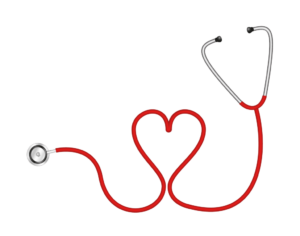
According to a study from the American Heart Association, 121.5 million Americans, or about 48.5 percent, dealt with heart or blood vessel disease as of 2016. The study says deaths from cardiovascular disease rose from more than 836,000 in 2015 to more than 840,000 in 2016.
And according to the Centers for Disease Control, heart disease is the leading cause of death for both men and women – about 610,000 people die of heart disease in the United States every year.
Those are frightening statistics indeed. But there are ways you can protect your heart. As always, you should start with a physical with your doctor and follow his or her advice.
Here are some other ways you can start right now:
- Give up smoking once and for all. Talk to your doctor about the many options available that can help you kick the habit. Your heart, lungs, and wallet will thank you.
- Manage your blood cholesterol. This can be tricky because your body needs cholesterol to be healthy, but an imbalance of cholesterol in your blood can lead to a heart attack or stroke. Visit www.heart.org for some tips for maintaining a healthy cholesterol.
- Manage your blood pressure. A healthy diet and regular exercise can be a great way to manage this. But sometimes you need medication to help. Get your blood pressure checked regularly (there are some great home blood pressure cuffs on the market) and follow your doctor’s instructions.
- Be physically active. We have heard this time and time again – and with good reason. If you don’t like a gym, get outside. New England has a myriad of great places to walk, hike, and explore. Just walking around a city like Boston is a great way to get a lot of steps in.
- Achieve and maintain a healthy weight. Was losing weight one of your New Year’s goals that has fallen by the wayside? If so, you are not alone. But be one of those ready to dust yourself off and try again. Commit to trying a new healthy food each week. Or try deleting an unhealthy one from your diet. Small steps can lead to big changes.
- Limit alcohol. Again, you don’t have to give up your favorite wine or beer. But perhaps make that more of a treat. Try enjoying a special type of tea served in a beautiful china teacup. Or a flavored water with some added fresh fruit in a sparkling glass can be delightful as well.
- Look after your mental health. It can be a stressful world out there – but there is also a lot of good. Commit to reading positive publications, visiting with friends, partaking in nature and making enjoyment a priority in your life. And remember – there is no shame at all if life gets too hard and you need to ask for help. That could be the greatest gift you could give yourself.
Tips from the American Heart Association
Symptoms of a heart attack
Chest discomfort
Most heart attacks involve discomfort in the center of the chest that lasts more than a few minutes, or that goes away and comes back. It can feel like uncomfortable pressure, squeezing, fullness or pain.
Discomfort in other parts of the upper body
Symptoms can include pain or discomfort in one or both arms, the back, neck, jaw or stomach.
Shortness of breath
With or without chest discomfort.
Other signs
May include breaking out in a cold sweat, nausea or lightheadedness.
According to the AHA, as with men, women’s most common heart attack symptom is chest pain (angina) or discomfort. But women are somewhat more likely than men to experience some of the other common symptoms, particularly shortness of breath, nausea/vomiting, and back or jaw pain.
——————————————————————————————————
Symptoms of a stroke
Spot a stroke F.A.S.T.
Face drooping
Does one side of the face droop or is it numb? Ask the person to smile.
Arm weakness
Is one arm weak or numb? Ask the person to raise both arms. Does one arm drift downward?
Speech difficulty
Is speech slurred, are they unable to speak, or are they hard to understand? Ask the person to repeat a simple sentence, like “the sky is blue.” Is the sentence repeated correctly?
Time to call 9-1-1
If the person shows any of these symptoms, even if the symptoms go away, call 9-1-1 and get them to the hospital immediately.
For more information visit the American Heart Association at www.heart.org or call 1-800-242-8721.












